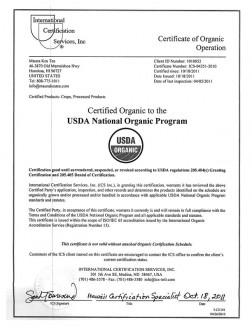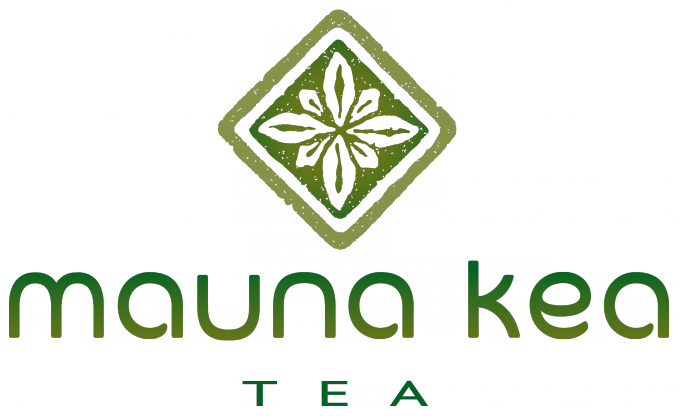As of January 2020 we are no longer maintaining organic certification. We still manage our field and production without chemical fertilizers and pesticides. We are pursuing natural approach to farming without restriction of organic limitations.
Here are a few changes we have made.
We had maintained Organic certification until January 2020 under USDA NOP. Certified Organic under USDA National Organic Program (NOP) 100% Organic:
- We are letting grazing animals (sheep, goats, etc) take care of our weeds and grass instead of using mowers and tractors to do most of weed control.
- We are significantly reducing and eliminating imported organic fertilizers and mineral amendments which help increase yield. We expect more natural and cleaner flavor. We use animals and cover crops to contribute to nutrient cycling. We also believe that diverse forest ecosystem as well as other tree crops help maintain overall ecological health and nutrient cycling.
Our 2019 harvests are no longer labeled as “Certified Organic” due to organic labeling rules.
We had maintained Organic certification until January 2020 under USDA NOP. Certified Organic under USDA National Organic Program (NOP) 100% Organic:
- Premium Green Tea
- Island Green Tea
- Sweet Roast Green Tea

Why do we care about being Certified Organic?
USDA National Organic Program is a third party certification and involves annual inspection. Certified organic means the farm and the products are inspected by a third party. Organic certification requires- Field map clearly labeled and indicated to avoid potential contamination (it’s not okay to just put chemical fertilizers on your ornamentals 3 feet away from your crop)
- Seed logs for organic seeds and planting stocks (to avoid GMO and fungicide treated seeds)
- Organic input (fertilizers, amendments, pesticides, etc) application logs and purchase logs field activity logs
- Auditing (to ensure that there are not more organic crops sold than produced, mysteriously it happens)
- Fertility management (how to keep soil fertility)
- Ecological diversity management (to maintain natural enemies, soil microbes and insects alive and well)

